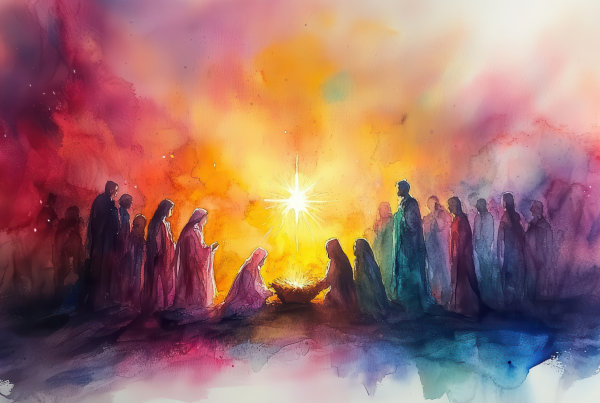Most of us hate acknowledging our limitations. We spend January making resolutions to go bigger and do better. Self-help books sell out on the shelves: Eat the Mediterranean Diet and Live Forever! 20-Minute Workouts for Killer Abs. How to Win Friends and Influence People. We long for perfection, but all this self-improvement wears us out. American individualism preaches self-reliance. Raised on tales of the Lone Ranger, we love to help but refuse to receive help ourselves. We love to serve but feel uncomfortable admitting our own needs.
On Ash Wednesday, we are forced to admit that our lives are not as put together as we might pretend. We receive ashes on our foreheads as a reminder of our mortality: From dust you came and to dust you shall return. We grow old. Our bodies fail. We return to dust. In a world obsessed with control, Ash Wednesday reminds us that we orchestrate neither our beginning nor our end. God created humanity out of dust (Genesis 2) and returns us to dust (Psalm 90:3).
Ash Wednesday gifts us perspective. As Moses says in the Psalms, “Teach us to number our days, that we may gain a heart of wisdom” (Psalm 90:12). Our time on earth is limited. We need help. Recognizing our limitations helps us rely on the compassion and unfailing love of God (Psalm 90:13). We are not perfect, but God’s power is made perfect in our weakness (2 Corinthians 12:9). For those who trust in Jesus, death is not the end. Death is the beginning of eternity with God.
Ash Wednesday begins the Lenten Season—a time of preparation to relive the passion, death, and resurrection of Christ. Lent mirrors the forty days Jesus spent in the desert tempted by Satan. During Lent, Guatemalans decorate their doors and windows with purple fabric to symbolize penance. Many Christians fast, pray, and commit acts of service in solidarity with Christ. Moses asks God to establish the work of our hands (Psalm 90:17). What is the work? To love and serve those around us, however imperfectly. The work is also to accept help for ourselves.
It is much easier to offer help than to receive it in return. Christians are not “white knights” in fairytales, riding in on horseback to save the day. We are imperfect people seeking to serve one another in love. We form interdependent relationships with our community by exchanging vulnerability and authenticity. Doctors, nurses, and clinic professionals fly to Guatemala and leave healed themselves. Volunteers build wheelchairs and an authentic community. Pastors come to pray and leave with inspired faith. Acknowledging our mutual need and interdependence creates opportunities for authentic service and connection. We become equal partners with all humanity, many members of one body of Christ.
Jesus emerged from his desert temptation with a simple message: “Repent, for the Kingdom of God has come near” (Matthew 4:17). What is the Kingdom of God like? It has a table big enough for everyone. The last become first. The weak become strong. Those who lose their life will find it. As we spend time preparing our hearts for Holy Week, may we strive for connection, not perfection. May the Kingdom of Heaven draw near.





